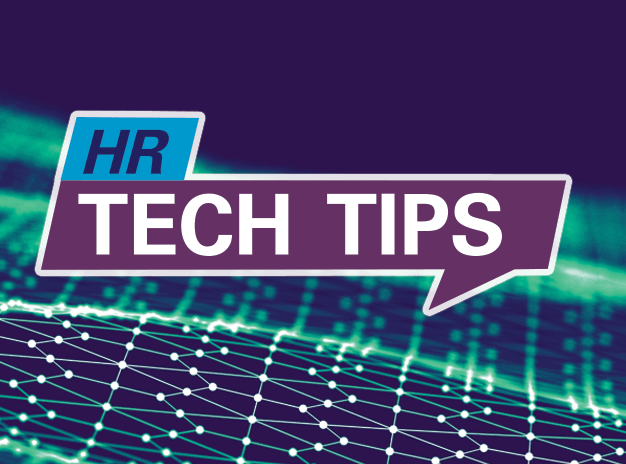The landscape of human resources has been evolving at an unprecedented pace, thanks to the rapid advancements in artificial intelligence (AI) technologies. As AI-powered tools continue to infiltrate every aspect of business operations, HR managers can no longer afford to ignore the impact of AI on their work. OpenAI, a leading AI research organization, has significantly transformed the HR sector. As a result, human resource managers can harness the power of AI to streamline processes, save time, and focus on strategic growth. This article will explore how AI changes the HR landscape, the benefits of embracing this technology, potential pitfalls, and how HR managers can embark on their AI journey.
The AI Transformation in HR
AI is revolutionizing the HR industry in various ways. The most significant areas where AI makes a difference include recruitment, employee engagement, performance management, and learning and development. With powerful AI tools like OpenAI, HR managers can streamline workflows, automate mundane tasks, and make data-driven decisions that positively impact the organization.
- Recruitment: AI algorithms can parse through large volumes of resumes, efficiently identify candidates who match specific job requirements, and even predict their success in the role. Reduce time and effort required to screen and shortlist candidates, resulting in a more efficient and effective recruitment process.
- Employee Engagement: AI can analyze employee feedback, identify engagement trends, and help HR managers develop targeted strategies to improve employee satisfaction and retention. Chatbots and virtual assistants can answer employees’ queries instantly, creating a more responsive and supportive work environment.
- Performance Management: AI-powered analytics can help HR managers monitor employee performance, identify high-potential individuals, and develop targeted training and development plans. Possible outcomes include better talent management, employee growth, and, ultimately, higher productivity and profitability for the organization.
- Learning and Development: AI can personalize employee learning experiences by analyzing their skills, interests, and preferences. This results in more effective training programs that cater to individual needs and boost overall employee performance.
Saving Time and Resources for Business Growth
By automating repetitive and mundane tasks, AI can save HR managers valuable time and resources that can be redirected toward strategic initiatives to grow the business. In addition, with AI taking over administrative work, HR professionals can focus on higher-level responsibilities such as talent acquisition, employee engagement, and long-term workforce planning.
For instance, HR managers can use the time saved from AI-powered recruitment processes to network and build relationships with potential talent, ensuring a solid pipeline of candidates for future roles. They can also invest more time in devising creative employee engagement strategies that foster a positive work culture, leading to higher retention rates and a more motivated workforce.
Potential Pitfalls
While AI offers numerous benefits, it is essential to recognize the potential pitfalls and challenges that come with implementing AI in HR:
- Data Privacy and Security: As AI relies heavily on data, organizations must comply with data protection regulations and maintain strict security protocols to safeguard sensitive employee information.
- Bias and Discrimination: AI algorithms can inadvertently perpetuate biases in the data used to train them, leading to unfair recruitment or performance assessment decisions. HR managers must work closely with AI developers to minimize these risks and ensure that AI tools promote diversity and inclusion.
- Ethical Considerations: Implementing AI in HR raises ethical concerns, such as the risk of employees feeling surveilled or monitored. HR managers should balance leveraging AI for efficiency and maintaining a positive work environment that respects employee privacy.
Getting Started with AI in HR
To begin exploring AI in the realm of HR, managers should consider the following steps:
- Identify Opportunities: Assess your HR processes and identify areas where AI could have the most significant impact. Start with the most significant impact. Start with repetitive, time-consuming, or data-driven tasks, as these are prime candidates for AI automation.
- Research AI Solutions: Conduct thorough research on AI tools and platforms, such as OpenAI, that cater to HR needs. Evaluate their features, pricing, and compatibility with your existing HR systems.
- Collaborate with IT and Data Teams: Work closely with your organization’s IT and data teams to ensure a smooth integration of AI tools into your HR processes. This collaboration is crucial for addressing any technical or data-related challenges during implementation.
- Pilot and Iterate: Before rolling out AI solutions on a large scale, start with a pilot program to test their effectiveness and identify potential issues. Gather user feedback, make necessary adjustments, and iteratively improve the AI implementation.
- Train and Upskill HR Team: As AI tools become an integral part of HR processes, you must train your HR team to use these tools effectively and upskill them to take on more strategic roles within the organization.
Embracing AI in HR is no longer a luxury but a necessity for organizations seeking to stay competitive in the modern business landscape. By harnessing the power of AI tools like OpenAI, HR managers can revolutionize their processes, save time, and focus on growing their businesses. First, however, it is crucial to approach AI implementation with a clear understanding of potential pitfalls and a well-defined strategy for integration.
Do not hesitate to seek assistance in managing HR technology from Henderson Brothers, who can help you navigate the AI journey seamlessly. Take the first step toward transforming your HR department and unlocking the full potential of AI by reaching out to Maggie Boucher today. The future of HR awaits you – embrace the AI revolution and lead your organization to new heights of success.
If you are looking for assistance on how to leverage HR tech for your business, please contact Maggie Boucher, senior consultant, at (412) 754-3245 or email [email protected].
Note: This article was generated by OpenAI’s ChatGPT4.
This response was further checked for plagiarism and grammar using AI-assisted Grammarly.
Fact-checked and minimally edited for content by a human.
ChatGPT4 Prompt: “Write me a 1000-word article with a creative title for Human resources managers that explains how AI, such as open ai, is changing the landscape for human resources writing requirements. Also, describe how saving time with this technology could free up time and resources to focus on growing the business. Be sure to include any potential pitfalls. How can a human resource manager begin exploring this new technology?”
Please note that the information contained in this posting is designed to provide general awareness in regard to the subject matter covered. It is not provided as legal, medical, or tax advice, nor is it intended to address all concerns in your workplace or for public health. No representation is made as to the sufficiency for your specific company’s needs. This post should be reviewed by your legal counsel or tax consultant before use.



